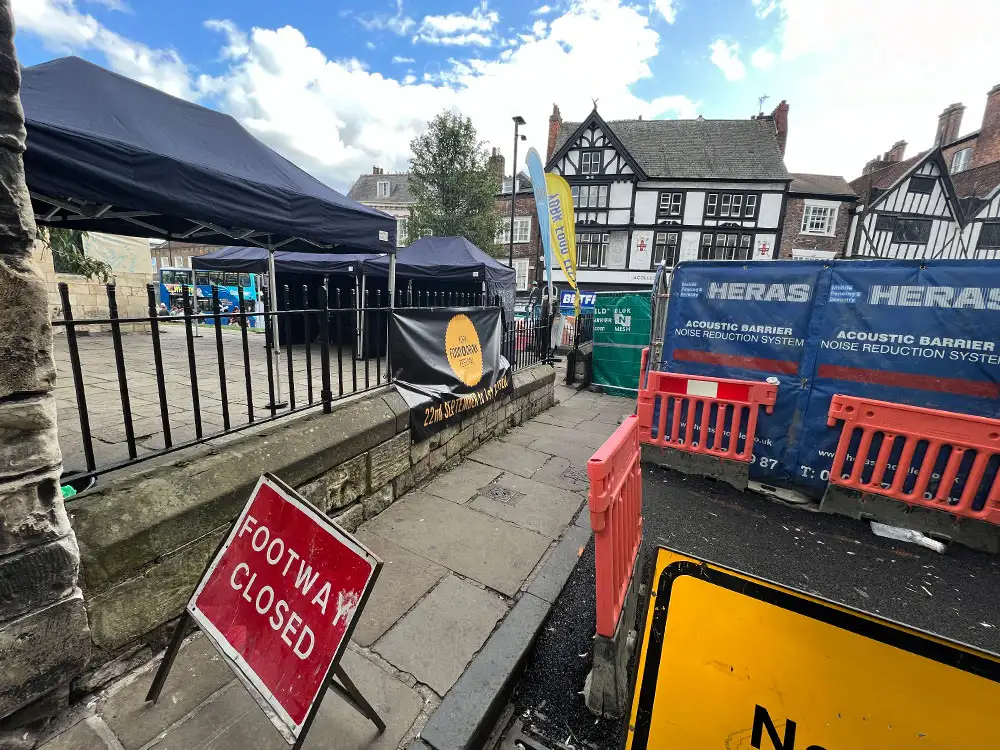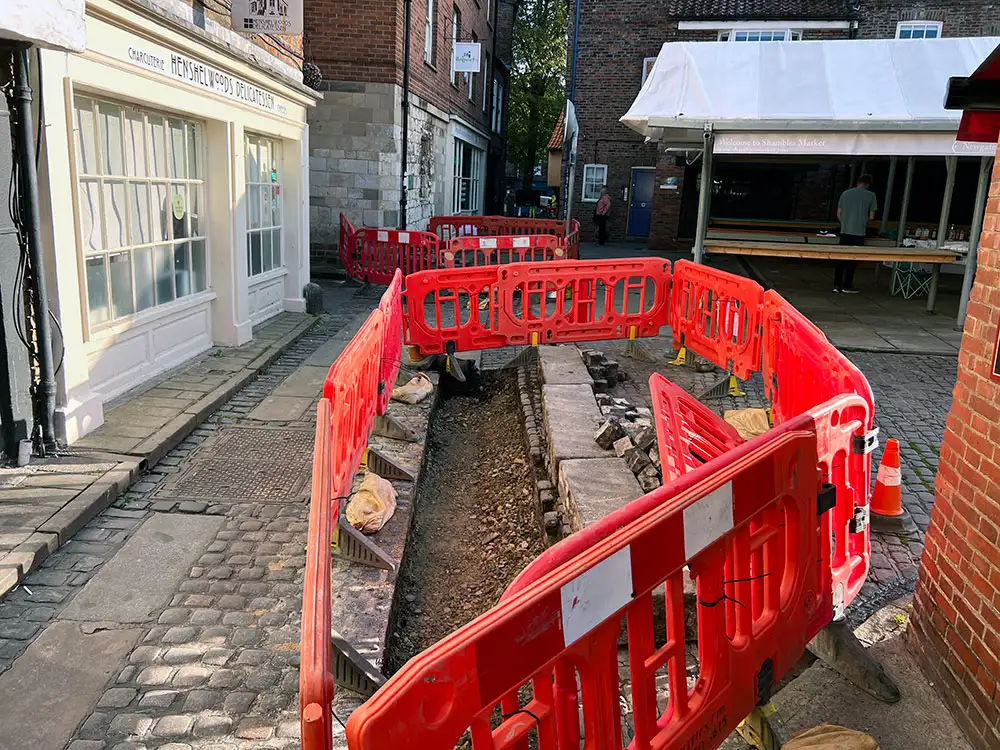Traders on York’s most famous street have sent a legal letter to City of York Council threatening a compensation claim as the roadworks cost them ‘tens of thousands of pounds’.
Work to install security bollards has closed one end of Shambles completely. That work will now be extended after medieval bones were discovered during the work.
And the problems were exacerbated by the decision to dig up Kings Court at the other end of Shambles last week too.
Businesses on the street say the disruption has cost them up to 20% in lost takings – and are using a London legal case to potentially claim compensation.
City of York Council owns many of the properties on Shambles. That means businesses are paying their council landlord rent as well as business rates.

On that basis, lawyers argue the council could be liable for a payout, based on a 2001 court ruling.
A judge found in favour of a London newsagent who had a kiosk in an underground station. He lost takings when London Underground – his landlord – shut the station exit next to his kiosk, reducing passing trade.
Solicitors Trillium Legal say the closure of the Pavement end of Shambles, effectively turning the street into a cul-de-sac, “leaves the city council wide open to claims for all profits lost together with damages for the actions taken.”
‘You will be liable for losses’
The legal action has been instigated by Phil Pinder, co-owner of The Potions Cauldron and founder of Shambles Area Traders Association.
He told a meeting of the council’s executive on Thursday: “To date the closure has cost my business over 20% in lost sales, and will run into tens of thousands of pounds by the end of the closure.
“Multiply this by the 40-plus independent shops in the street and your officers are directly affecting the wellbeing and viability of business in the street.”
He urged councillors to help, by allowing access via the St Crux churchyard and at weekends, as traders have asked previously.
“It is within your power councillors to open the street this weekend, demand your officers do as you say and stop taking the word of officers as the only option. Stop being led and start leading!”
Phil concluded: “I should alert you that I have sent a letter before action to the council, this action relies on test case Platt v London Underground.
“Landlords blocking access to premises constitutes a derogation of lease granted and you will be liable for losses.”
